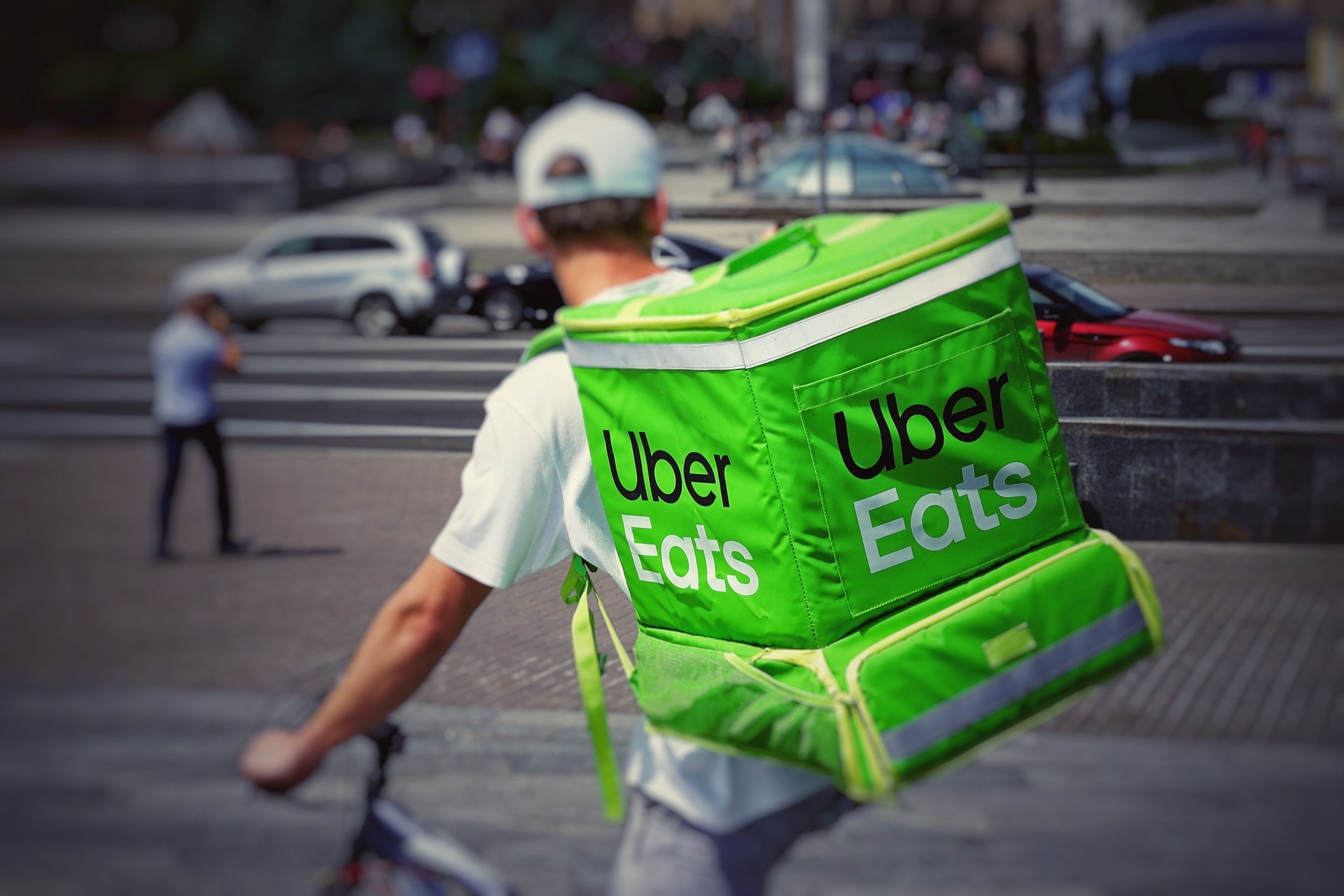
Uber’s delivery business reported strong growth in the second quarter, but it was not enough to offset a significant hit from the pandemic to its core ride-hailing business.
Gross booking for its Delivery segment came in at $6.96bn, which converted into adjusted net revenue of $885m. This marks year-over-year growth of 103%.

Access deeper industry intelligence
Experience unmatched clarity with a single platform that combines unique data, AI, and human expertise.
But as stay-at-home measures created a surge in demand for food deliveries, those same restrictions caused Uber’s ride-hailing revenues to nosedive.
For the three months ended 30 June, Uber’s gross Mobility bookings were $3.05bn. This translated to adjusted net revenue of $793m – a 67% drop from the year-ago period. By these metrics, Uber’s delivery business is now larger than its ride-hailing segment.
However, when measured by Uber’s adjusted profit metric, Mobility came out on top with adjusted EBITDA of $50m versus Delivery’s $232m loss.
Uber Q2 results: Revenues down 29%
Overall, Uber reported revenues of $2.24bn in Q2 – a decline of 29% year-over-year.

US Tariffs are shifting - will you react or anticipate?
Don’t let policy changes catch you off guard. Stay proactive with real-time data and expert analysis.
By GlobalDataThe Silicon Valley firm, which went public last year and is yet to make a profit, reported a net loss of $1.78bn for the period.
Uber reduced its net losses from a year ago, which then stood at $5.24bn. However, this figure was inflated by costs associated with going public.
“Our team continues to move at Uber speed to respond to the pandemic’s impact on our communities and on our business, leading our industry forward with new products and safety technologies, and harnessing the strong tailwinds driving exceptional growth in Delivery, with Gross Bookings growing 122% year-over-year excluding exited markets,” Uber CEO Dara Khosrowshahi said in a statement.
“We are fortunate to have both a global footprint and such a natural hedge across our two core segments: as some people stay closer to home, more people are ordering from Uber Eats than ever before.”
Despite its financial hit, Uber has continued to acquire companies, with plans to buy on-demand delivery firm Postmates and UK taxi software business Autocab.
Net losses per share were $1.02 – higher than analyst estimates. Uber’s share price dropped 4% after it published it Q2 results. Its share price plummeted to an all-time low in March as the impact of the coronavirus became clear to investors. Since then, Uber’s share price has recovered by 122% but it still has substantial ground to make up to regain the high-point it enjoyed after going public.
Read more: Uber announces partnership with Thames Clippers boat service







